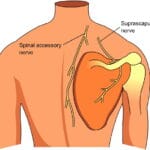Tired of feeling sluggish? Curious about MIC B12 shots and their potential benefits? This guide provides a comprehensive overview of MIC B12 injections, covering their potential benefits, side effects, costs, and what to expect. We’ll also delve into important considerations, alternatives, and the crucial role of consulting a healthcare professional.
Understanding MIC B12 Injections
What exactly are MIC B12 shots? These injections combine vitamin B12 with a trio of lipotropic compounds: methionine, inositol, and choline (hence “MIC”). Vitamin B12 plays a critical role in energy production and nerve health, acting as the body’s “spark plug.” Lipotropics, on the other hand, are thought to support liver function and fat metabolism. This combination is what makes MIC B12 shots so intriguing to many.
Potential Benefits of MIC B12 Shots
While research is ongoing, some studies suggest MIC B12 shots may offer a range of potential benefits:
- Weight Management Support: Lipotropics are believed to aid fat processing, potentially contributing to weight management efforts when combined with a healthy diet and exercise.
- Increased Energy: B12 is essential for energy production. MIC B12 shots could help address B12 deficiency, potentially boosting energy levels, particularly for individuals with absorption issues.
- Cognitive Enhancement: Some individuals report improved mental clarity after receiving MIC B12 shots, although more research is needed to confirm this potential benefit.
- Enhanced Well-being: Many users report a general sense of improved well-being, possibly due to the combined effects of the ingredients.
Remember, individual responses vary, and these benefits are not guaranteed.
Possible Side Effects
While generally considered safe, MIC B12 shots can cause mild side effects:
- Injection Site Discomfort: Minor pain, redness, or itching at the injection site is common and usually resolves quickly.
- Digestive Issues: Some individuals experience mild nausea or diarrhea. Staying hydrated can often minimize these effects.
Serious side effects are rare, but it’s crucial to discuss any concerns with your doctor.
Who Should (and Shouldn’t) Consider MIC B12 Shots
MIC B12 shots might be a good option if:
- You’re struggling with weight management and exploring additional support.
- You’ve been diagnosed with a B12 deficiency.
- You’re generally healthy but interested in potential energy and well-being boosts.
However, you should avoid them if:
- You’re pregnant or breastfeeding.
- You have allergies to any of the ingredients.
- You have certain medical conditions. Consult your doctor for personalized advice.
Practical Details: Dosage, Administration, and Cost
MIC B12 injections are typically administered subcutaneously (just under the skin) two to three times a week. Your doctor will determine the appropriate dosage and schedule. While self-injection is possible, proper training from a healthcare professional is essential for safety and efficacy. Costs vary based on location and provider, and insurance coverage may not always apply.
Exploring Alternatives: Traditional B12 and Lifestyle Factors
Traditional B12 shots focus solely on addressing B12 deficiency, while MIC B12 shots include lipotropics for broader potential benefits. Remember, MIC B12 shots are not a magic bullet. They work best as part of a holistic wellness approach that includes a healthy diet and regular exercise.
Separating Fact from Fiction
Reliable information is key. Consult your doctor, reputable medical websites, and scientific studies for accurate information about MIC B12 shots.
Making Informed Decisions: The Bottom Line
MIC B12 shots may offer various potential benefits, but they are not a standalone solution. Consult your doctor to discuss your individual needs and determine if MIC B12 injections are right for you. They can assess potential risks and help you make informed decisions about your health.
Why are NHS Trusts Considering Alternatives to B12 Injections?
Recent discussions have surfaced regarding some NHS trusts exploring alternatives to B12 injections, specifically oral B12 supplements, for certain patients. This is not a complete cessation of B12 injections across the NHS but rather a localized initiative to potentially streamline treatment and manage resources.
Balancing Cost and Care
One key factor is cost-effectiveness. Injections require medical professionals, appointments, and supplies, while oral supplements can be self-administered at home, potentially reducing expenses. However, cost isn’t the only consideration. Some experts suggest oral B12 can be equally effective for some individuals, particularly at higher doses.
The BMG Example
One NHS trust, BMG, recently transitioned approximately 1,300 patients from injections to tablets. This move raises important questions about patient selection criteria, the efficacy of oral B12 for these patients, and ongoing monitoring to ensure comparable health outcomes.
Delivery Methods: Injections vs. Oral Supplements
B12 injections deliver the vitamin directly into the bloodstream, ensuring rapid absorption. Oral B12, however, must navigate the digestive system, where absorption can be less efficient, especially for those with certain conditions like pernicious anemia.
| Feature | Injection | Oral |
|---|---|---|
| Administration | By healthcare professional | Self-administered at home |
| Absorption | Direct, highly efficient | Can be less efficient, gut-dependent |
| Efficacy | Generally very effective | Potentially comparable at high doses |
| Cost | Higher | Lower |
| Convenience | Requires appointments | More convenient |
Current NHS Guidelines and Future Directions
While the official NHS guidelines still generally recommend injections for B12 deficiency treatment, local initiatives like BMG’s suggest a potential shift toward exploring oral B12 as a viable alternative in specific cases. Further research and long-term studies are crucial to fully understand the implications of this shift. The guidelines also emphasize careful consideration for patients with concomitant folate deficiency, as this can impact B12 absorption and utilization.
Disclaimer: This information is for educational purposes only and should not replace professional medical advice. Always consult your doctor before making any health decisions.
Are MIC Injections Better Than Standard B12?
Let’s clarify the difference between MIC injections and standard B12 shots. “MIC” refers to the added lipotropics (methionine, inositol, choline), while standard B12 injections simply deliver vitamin B12. The question isn’t whether MIC is “better,” but rather if the added lipotropics offer additional benefits. Discover the fascinating connection between magnesium l threonate hair loss and explore how this unique compound may impact your hair health journey.
Various B12 Delivery Methods
B12 can be administered via intramuscular (IM) injections, oral supplements, and sublingual tablets. Injections provide rapid absorption, while oral supplements are convenient but absorption can be affected by digestive health. Sublingual tablets bypass the digestive system, offering a potentially more direct route to higher active B12 levels in the blood. Uncover the transformative journey of microblading healing stages and witness the remarkable evolution of your eyebrows day by day. The optimal method depends on individual circumstances.
Effectiveness and Off-Label Use
Research suggests high-dose oral B12 (around 2000 µg daily) can be as effective as injections for correcting B12 deficiency. Some research even suggests sublingual B12 might lead to higher levels of active B12 in the bloodstream. MIC B12 injections are sometimes used off-label for weight loss and energy boosts, but these uses lack FDA evaluation and scientific evidence.
Safety, Cost, and Medical Guidance
B12 supplementation, regardless of the method, can have potential side effects, though usually mild. Consulting your doctor before starting any B12 supplementation is crucial. They can assess your needs, determine if you have a deficiency, and guide you on the safest and most effective approach. Oral B12 is generally more affordable than injections.
| B12 Supplementation | Pros | Cons | Approximate Cost |
|---|---|---|---|
| Injections | Fast absorption, direct delivery | Requires needles, potential injection site pain, costlier | Higher |
| Oral Supplements | Convenient, easy to take | Absorption can be affected by digestive issues | Lower |
| Sublingual Tablets | Bypasses digestive system, potentially higher B12 levels | May not be suitable for everyone | Moderate |
Remember, your doctor is your best resource for personalized advice.
How Often Should I Get MIC B12 Injections?
The frequency of MIC B12 injections depends on individual factors such as deficiency severity, overall health, and treatment goals.
Initial and Maintenance Dosing
For significant B12 deficiency, initial injections might be frequent (e.g., daily or every other day) for a short period to replenish B12 stores. Once levels stabilize, frequency typically decreases (weekly, monthly, or even less). Regular monitoring by your doctor ensures appropriate adjustments to your injection schedule.
Alternatives to Injections
Oral and sublingual B12 are viable alternatives, especially for mild deficiencies. High-dose oral B12 (around 2000 µg daily) may be as effective as injections, while sublingual B12 might offer even higher active B12 blood levels. Choosing the right method involves a discussion with your physician.
Pros and Cons of B12 Injections
| Feature | Pros | Cons |
|---|---|---|
| Delivery | Fast, direct delivery to bloodstream | Requires needles, potential site discomfort |
| Effectiveness | Highly effective for severe deficiencies | Less convenient than oral supplements |
| Absorption | Bypasses digestive absorption issues | May not be necessary for mild deficiencies |
| Cost | More expensive than oral supplements | Requires healthcare visits or self-administration |
| Monitoring | Dosage/frequency controlled by professionals | Potential for rare allergic reactions/side effects |
Consulting Your Doctor: The Essential Step
Always consult with your doctor before starting any new supplement or treatment, including MIC B12 injections. They can assess your individual needs, determine if supplementation is appropriate, and recommend the best approach for your health. Self-treating can be risky. Prioritize professional medical advice for safe and effective care.
- Mastering Leader in Spanish: The Complete Guide - April 19, 2025
- Uncovering Surprising Parallels: England Size Compared to US States - April 19, 2025
- Old Mexico Map: Border Shifts 1821-1857 - April 19, 2025

















2 thoughts on “MIC B12 Shots: A Comprehensive Guide to Benefits, Side Effects, and What to Expect”
Comments are closed.